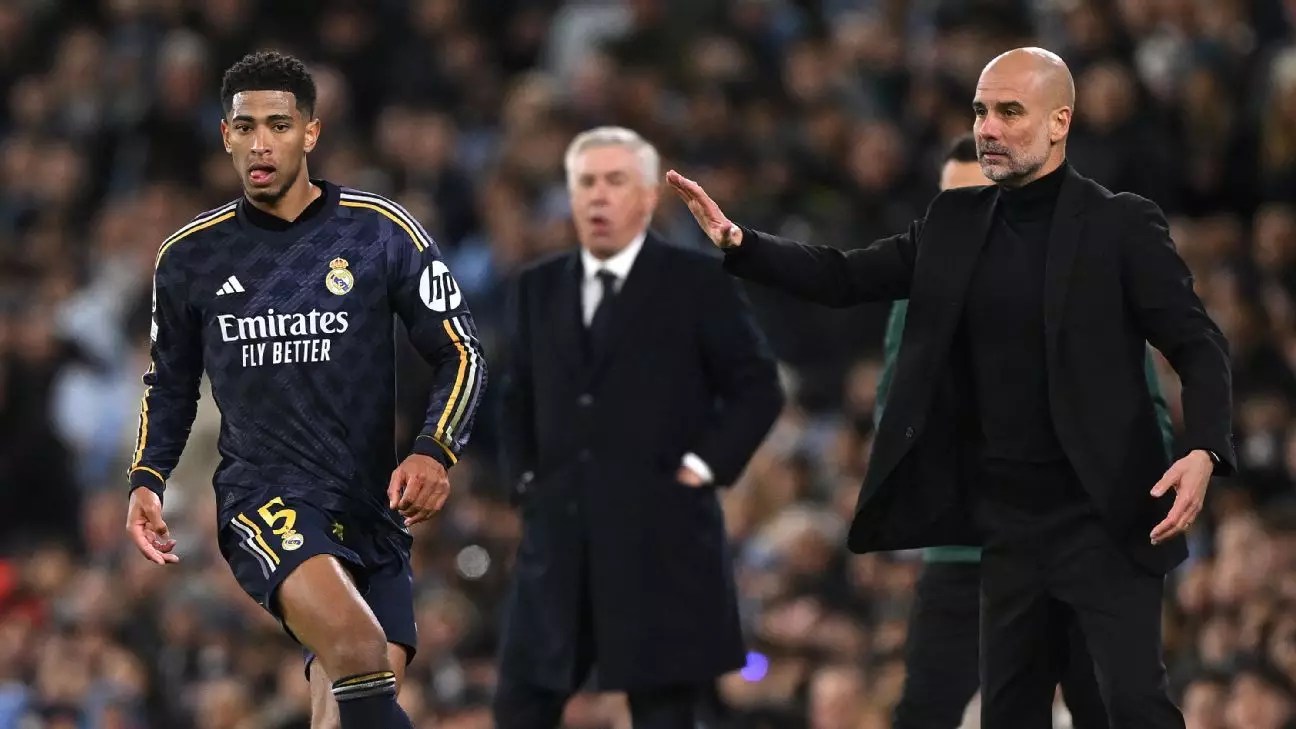The recent red card issued to Jude Bellingham, the young England midfielder playing for Real Madrid, has sparked considerable debate among football fans and analysts alike. Following a match against Osasuna, Bellingham was sent off for allegedly swearing at the referee, Jose Luis Munuera Montero. Notably, Bellingham scored the decisive goal in a previous Champions League encounter against Manchester City, setting the stage for significant scrutiny on his behavior. Although Bellingham contends that his comment was merely a dismissal of the referee—arguing he said “f— off” rather than the more direct “f— you”—the underlying implications of his actions resonate far beyond semantics.
Pep Guardiola, the Manchester City manager, expressed a lack of sympathy for the situation, highlighting the importance of respecting the referee’s authority. This response not only sheds light on his managerial philosophy but also reflects the broader sentiment within professional football regarding player conduct towards officials. Guardiola noted, “the best thing is not to do [insult] it and leave the referees in peace.” This statement underscores a critical belief in maintaining the integrity of the game, suggesting that preserving the dignity of referees is paramount, regardless of the incident’s context or interpretation.
By assessing Guardiola’s reaction to Bellingham’s dismissal, we can identify an essential aspect often overlooked in discussions about player behavior—intention versus impact. His assertion that the intention behind words plays a crucial role in judging the appropriateness of the action also opens the door for conversations about the nature of communication in high-stakes environments. The realities of competitive sports often lead participants to high emotions; yet, this does not absolve players from the consequences of their language.
The aftermath of Bellingham’s red card has not only been about the incident itself but also about the treatment of referees in the sport. Following the events, the Spanish football federation condemned the public outcry—perceived as abuse—against the official, emphasizing the necessity of safeguarding the refereeing community. This situation prompts an essential dialogue on how players, coaches, and supporters can advocate for constructive criticism instead of hostility towards referees. Guardiola’s suggestion that “there have always been decisions” positions this incident as part of a greater narrative in football, where refereeing inconsistencies are a constant challenge.
As the Champions League clash approaches, Guardiola’s minimal concern regarding imparting caution to his players about their language towards officials is telling. It raises questions about the balance between maintaining competitive spirit and upholding respect for the game’s laws. Will this incident prompt a deeper reflection on the language and behavior of players towards referees? As attention focuses on the upcoming game, both Guardiola and Bellingham may need to consider the long-term implications of how they exemplify respect and discipline, not just for immediate games, but for the future of football as a whole.
While Guardiola’s comments may seem far removed from the emotional heat of a live match, they open a wider conversation about respect, behavior, and professionalism within football. As the narrative unfolds, it remains critical for all parties involved to transcend the immediate circumstances and reflect on their roles within the greater context of the sport.


Leave a Reply